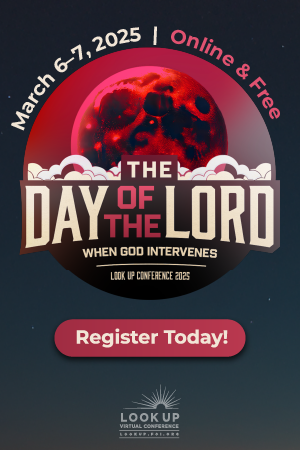The Unfathomable Christ
During His incarnation, Christ was humiliated for our sake. Here are seven characteristics of Jesus that should make us love Him even more.
You are about to read one of the most enlightening passages in all of Scripture. In it, the apostle Paul disclosed the unfathomable truth and magnificence of Jesus Christ. Paul expounded on Christ’s deity; His equality with God the Father; and His eternality, incarnation, humanity, humility, servanthood, voluntary death on the cross, exaltation, victory over the supernatural forces of evil, ascension, and universal authority over all of creation.
Jesus’ incarnation is the greatest miracle revealed to mankind, and no one can fully comprehend it. At the name of Jesus, heaven and earth will eternally bow and confess Him as Lord, to the glory of God. All of these truths are divinely revealed in Philippians 2:5–11:
Let this mind be in you which was also in Christ Jesus, who, being in the form of God, did not consider it robbery to be equal with God, but made Himself of no reputation, taking the form of a bondservant, and coming in the likeness of men. And being found in appearance as a man, He humbled Himself and became obedient to the point of death, even the death of the cross. Therefore God also has highly exalted Him and given Him the name which is above every name, that at the name of Jesus every knee should bow, of those in heaven, and of those on earth, and of those under the earth, and that every tongue should confess that Jesus Christ is Lord, to the glory of God the Father.
This Scripture is commonly called the kenosis (Christ’s emptying) passage, a theological term used to emphasize Christ’s humiliation during His incarnation. It begins with a command, not a suggestion: “Let this mind be in you which was also in Christ Jesus” (v. 5). Paul was telling Christians to pattern their lives on Christ’s humility—to be humble and selfless and to surrender completely to serving God. He then detailed the attitudes and character traits Jesus manifested while on Earth.
Christ Revealed
Substance. Jesus was “in the form of God” (v. 6). The word form speaks of His preexistence as deity in heaven before His incarnation on Earth as a Man. It refers to His essence, essential person, and divine nature (Jn. 1:1; 10:30).
Sovereignty. Christ “did not consider it robbery to be equal with God” (Phil. 2:6). Though Jesus already possessed equality with the Father, He did not cling to His privilege. Instead, He laid it aside at His incarnation.
Surrender. Christ surrendered His position and “made Himself of no reputation” (v. 7). The phrase literally means “to empty” or “to make empty” and refers to Jesus emptying Himself of what He possessed in His preexistent state with God the Father.
This concept has been misunderstood and misinterpreted for centuries. Some believe Christ emptied Himself of His deity, which cannot be true because Jesus is eternally God and cannot stop being God. Others believe He emptied Himself of His divine attributes or nature. But again, without the attributes of God, He would not be God. Still others believe He emptied Himself of the use and power of His divine attributes. This view, too, is incorrect. While on Earth, Jesus used the power of His divine attributes in performing miracles.
The incarnation did not strip Jesus of His essence, nature, or power as God. It simply added humanity to Him as the divine Son of God. So what happened when Christ emptied Himself? He willingly relinquished His rights as God and became subordinate to God the Father.
Subordination. Christ accepted a subordinate role in the Godhead. He took “the form of a bondservant, [when] coming in the likeness of men” (v. 7; cf. Mt. 20:28; Lk. 22:27; Jn. 5:19; 12:49–50). The word form is the same word used in Philippians 2:6 to describe the divine, preincarnate Christ. Here the incarnate Christ is as a bond slave in human form.
The phrase coming in the likeness of men (v. 7) means Christ entered a new state of being when He became flesh. He was not an apparition, phantom, spirit, copy, or illusion. He was a genuine Man, being both divine and human and possessing both a divine and human nature (Jn. 1:14), but without man’s sin nature.
In the incarnation, Christ stepped down from His sovereign position in heaven to become a submissive slave on Earth.
Submission. “And being found in appearance as a man, He humbled Himself” (Phil. 2:8). The word appearance is how men saw Him, without perceiving His inner nature and essence. Christ “humbled Himself,” meaning He made Himself low by leaving the glories of heaven to become a Man. Bible expositor Lehman Strauss put it well:
He took upon Him a body like ours and faced a limited human existence on earth. The world has never witnessed a truer expression of self-renunciation. When we ponder the fact that God became Man, labored with His hands, faced life in every respect as Man, served, sorrowed, and suffered, we stand in holy awe and wonder at so great condescension. The Sovereign of all became the Servant of all.1
Sacrifice. Christ “became obedient to the point of death” (v. 8). His death was not accidental, nor were the circumstances related to it
out of His control. Rather, His crucifixion was thoroughly in God’s predestined, providential plan. The Lord Jesus was obedient to the Father in all things “to the point of death,” voluntarily and sacrificially giving His life (Jn. 10:17–18; Heb. 5:7–8; 10:9). All men are born to live, but Jesus came to die so people might experience salvation and eternal life.
Substitute. Christ’s death, “even the death of the [a] cross,” was a substitutionary sacrifice (Phil. 2:8). The definite article the is not in the original Greek text, which reads, “death on a cross.” Jesus died as a common criminal via the form of capital punishment meted out by Roman law. He died a shameful, humiliating, embarrassing, disgraceful, degrading, and excruciatingly painful death. And He died as one who is cursed (Gal. 3:13).
Dying on the cross, Christ became a substitute, experiencing God’s wrath for mankind’s sin. He took the punishment all people deserve and reconciled mankind to God so that individuals can receive eternal redemption through faith. His death was foreknown, preordained, vicarious, substitutionary, and redemptive.
Christ’s Rule
Because Jesus willingly left His glorious position in heaven to suffer shame, humiliation, and the ignominy of crucifixion, God the Father “has highly exalted Him” (Phil. 2:9). The phrase highly exalted means to elevate to the highest position of veneration and worship possible in heaven. Christ was resurrected from the dead (Heb. 4:14), is enthroned “at the right hand of the Majesty on high” (1:3), and serves as the believer’s advocate in heaven (7:25; 9:24).
He is also highly esteemed. The Father has “given Him the name which is above every name” (Phil. 2:9). Notice, the text does not say Christ was given “a” name but, rather, “the” name. The word given means to grant, bestow, or give generously. It is the “name…above every name.”
REVELATION: HEARING THE LAST WORD
Read the author’s full commentary on this prophetic book in Revelation: Hearing the Last Word by David Levy.
Many people have opinions about this “name.” Some believe it is “Son” or “God.” Others say it is “Jesus.” Others believe it is “Lord” or “KING OF KINGS AND LORD OF LORDS” (Rev. 19:16). Some teach it will be “a name written that no one knew except Himself” (v. 12). Others believe the definite article that appears with the word name means Paul was speaking about Jesus’ office, rank, and dignity. Whatever the name turns out to be, it must sum up Jesus’ majesty, sovereignty, and supreme authority over everything in the universe.
All of creation will honor and worship Jesus: “Every knee should bow,” whether in “heaven,” “earth,” or in the abode of Satan and his demonic followers “under the earth” (Phil. 2:10). Every creature in creation with rational thought will acknowledge Christ, and “every tongue should confess that Jesus Christ is Lord” (v. 11). Believers and unbelievers alike, as well as the entire demonic realm, will declare, “Jesus Christ is Lord!”
Jesus Christ’s self-humiliation, submission, sacrifice, substitutionary death on the cross, resurrection, ascension, and exaltation all fulfill God’s plan and purpose. Christ accomplished the work of redemption, making it possible for God to bestow grace, mercy, and salvation on sinful people who trust Him as Savior, thus bringing “glory…[to] God the Father” (v. 11).
No wonder Paul calls believers to humble themselves and surrender completely to serving God. We should stand in awe and amazement at the majesty and unfathomable Person of Jesus the Christ and fall on our faces in worship at the magnificent plan and purpose of God.
ENDNOTES
- Lehman Strauss, Devotional Studies in Philippians (Neptune, NJ: Loizeaux Brothers, 1959), 114.









What an exceptional commentary on the preexistence, mortality and Eternal life of our (MY) Saviour, and Redeemer, Jesus the Christ..
Thank you David Levy for explaining this very special message!!!! May His Blessings distill upon your soul to your everlasting benefit..